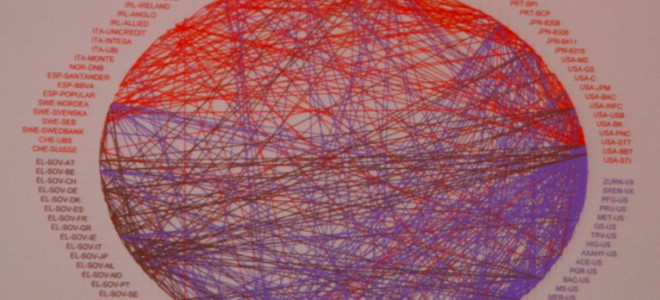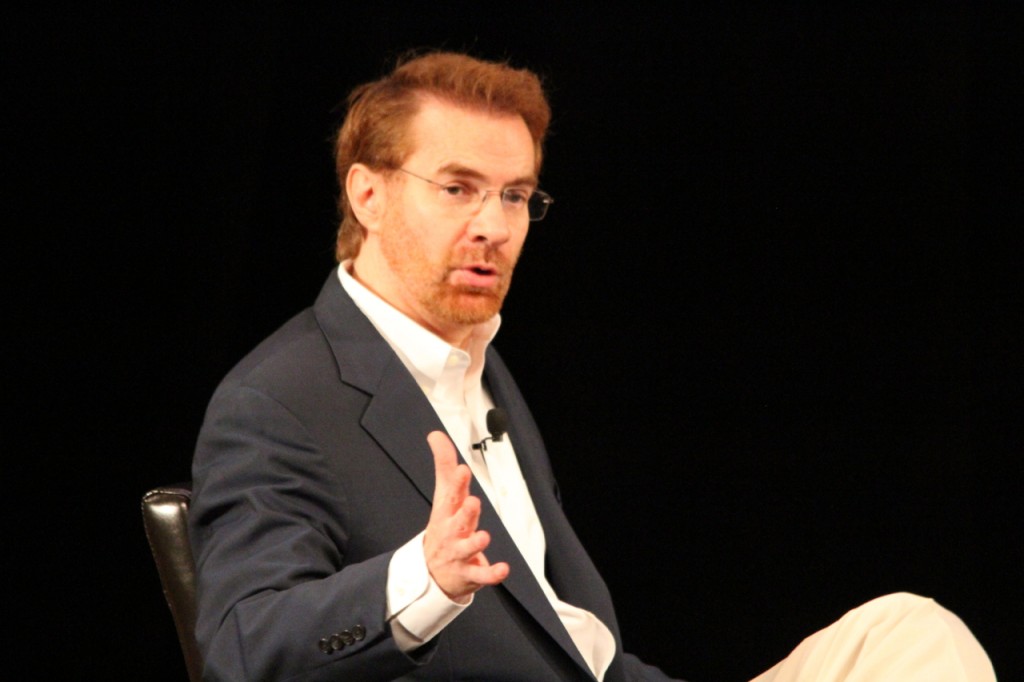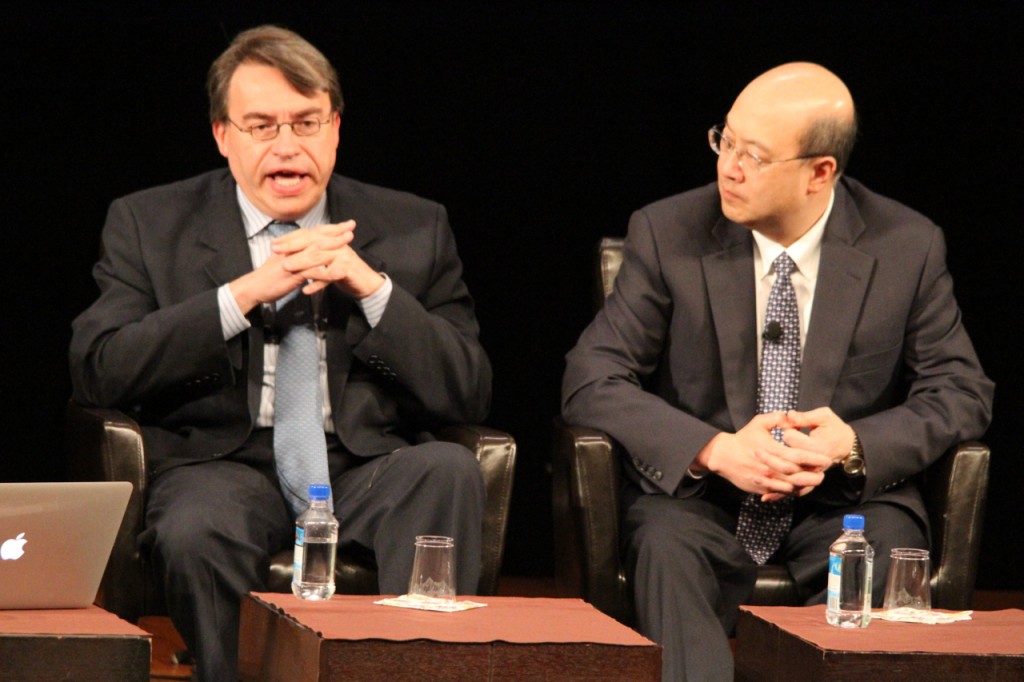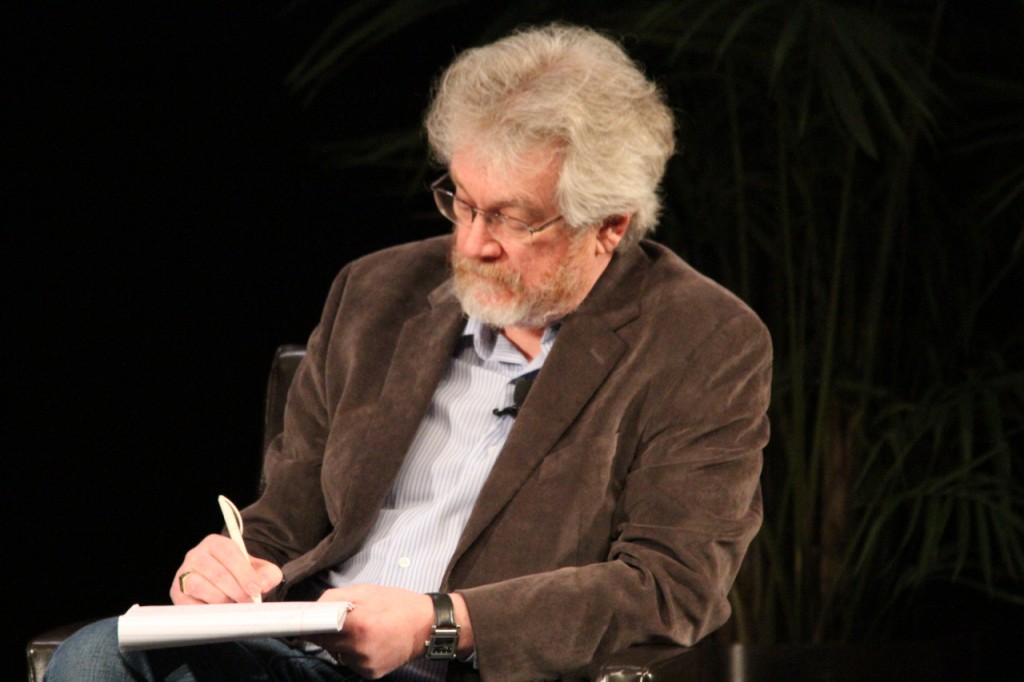Big Data – Big Fun at MIT CIO Symposium. Really!
May 22, 2013

Of the main sessions on the MIT CIO Symposium agenda, who among you – gentle readers – would have chosen the session on Big Data to be the one that stood out as fun? Wouldn’t you think the social business session would be cool? Or the one I wrote about earlier detailing today’s CIO and innovation? Well, Big Data was big fun. Really.
From the moment Erik Brynjolfsson, MIT Center for Digital Business, took the stage, the audience was taken by the new definitions and applications of Big Data in the workplace. In fact, Brynjolfsson called Big Data a “measurement revolution.”
He added that, “Great revolutions in science beging with revolutions in management.” Isn’t that cool? I think so. Here’s how the session went – some notes with my thoughts tossed in. Enjoy!
Brynjolfsson’s points…
Today we’re on the early stages of a revolution in measurement. Management, business, economics and the information economy.
There are many new tools that allow us to see what’s happening in our organizations.
Each one of us is generating a cloud of data.
To take full advantage….[of Big Data] we have to understand what we’re going to do with that information.
Companies embrace technology and then advance. Or they are displaced by the companies that embraced a new technology – and then they have to respond.
——
My take…
Interestingly, Hippos were mentioned. Not in the wildlife sense, but in the vernacular that the HPP (highest paid person in the room) is the person who makes decisions regarding technology and business processes. Well, when it comes to Big Data, that can’t be the model. Business managers, CIOs and related minds have to be open to finding stuff and understanding the world around their business.
——
Brynjolfsson went on…
“The hippos, we need to put them on a diet…that’s something we’re going to be able to do with Big Data.”
Data scientists are making sense of information in a more efficient way than ever before. Insurance companies predicting which types of cars will be in accidents. Wine chemistry predictions.
Data-driven decision makers are winning. But only at a 5% rate. Is this really a benefit?
Whole sets of data that are now being leveraged to make predictions on lots of things.
Data is not knowledge. Correlation is NOT causality.
Where the data comes from is very important.
When dealing with Big Data, you need to Measure, Experiment, Analyze and Replicate.
Medicine, Business, Finances. All these things can benefit from the analysis of big data. We can all gain perspective by taking a look at Big Data.
——
Other folks on the panel pitched in and here are my notes on their random – but not really random – thoughts on Big Data…
There was an example of finding the best available treatment for a cancer patient by analyzing Big Data.
——
My take…
A colleague said that the session was actually a good session that helped show how Big Data can actually be used, and possibly commercialized. Makes sense. Instead of keeping Big Data as a theoretical – or data for the sense of data – exercise, now we can see ways in which lots of data points can help us solve problems and find real-world information.
——
Back to the panel…
Big Data and the resulting analysis might make it possible to change policy on healthcare, financial markets and other far-reaching topics like learning, behavior, politics and lifestyles. Even crime, insurance and more. But care needs to be taken to ensure that we understand correlations vs. causality.
Ensuring privacy is paramount. Cryptographic methods need to be used so that data can be used without discrimination.
Aggregating data without jeopardizing privacy is important. But it increases computational burden…not a big issue.
“Keep Big Data from becoming Big Brother,” said professor Andrew Lo, Finance, MIT Sloan School of Management.
——
My take…
This is the future. We are going to have our data harvested in an increasingly regular and random way moving forward. We can’t keep our info off the grid in the way we might want…but it might serve us well to share this info. Sort of a greater good that will come to all people through the analysis of all data. Big Data…scary? Not really when you understand how CIOs and businesses are starting to leverage it.
What’s your take?





